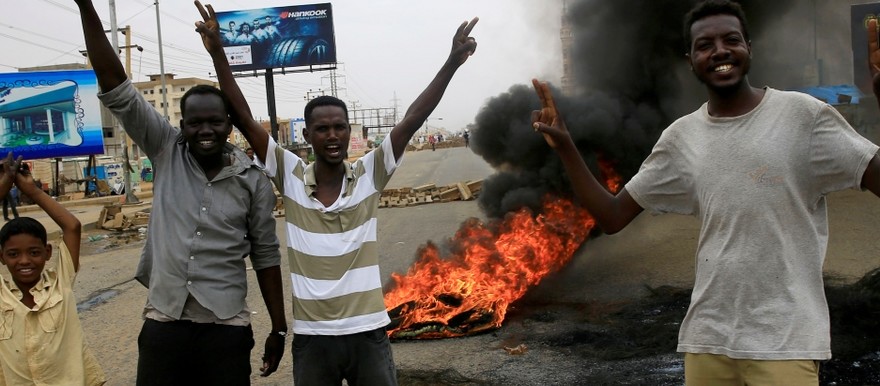The paramilitary Rapid Support Forces (RSF) chief and deputy head of the Transitional Military Council (TMC), Lieutenant-General Mohamed Hamdan Dagalo, previously warned that he will not tolerate "any chaos" in Sudan. Despite his organization’s strong-handed efforts, The Guardian reports that Sudan has indeed deteriorated into chaos, with long lines for fuel and bread, roads blocked by makeshift barricades, and an absence of security leaving residents at the mercy of thieves and the paramilitary. The situation is likely to worsen as divisions among the military rulers would likely result in violent clashes culminating in anarchy.
Few of us want conflict and violence. However, over time we have created a culture in which conflict and violence are often seen as the only solutions to irreconcilable differences. Fortunately, there are better ways to solve social problems. One proven way to resolve differences is by utilizing a little known effective means for ending conflict and violence: Invincible Defense Technology (IDT).
Invincible Defense Technology: A Non-Religious, Humane and Beneficial Approach
The practical components of IDT are the non-religious Transcendental Meditation (TM) and the more advanced TM-Sidhi programs. When large groups of experts practice these programs together, a powerful field effect of coherence and peace is generated that spills over into the surrounding population. According to a peer-reviewed study recently published in Studies in Asian Social Science, group practice of these programs in Cambodia between 1993 and 2008 was associated with a 96.2% decline in sociopolitical violence in that war-torn country compared to violence in the preceding three years. The authors conclude the likelihood this reversal in the rising 1990–1992 trend of violence occurred randomly was one chance in 10 million. Other published research has shown that after deployment of IDT, Cambodia's gross domestic product (GDP) growth rates averaged 8.9%, and poverty was reduced by 63% between 1994 and 2008. By 2010 Cambodia was ranked 63rd out of 152 countries on the international scale of poverty, an unprecedented jump of 89 places in less than one generation.
Extensive scientific research has repeatedly confirmed similar results in other places and well as measurable decreases in war deaths, terrorism, and crime when IDT is utilized. Due to this research the non-profit organization Global Union of Scientists for Peace (GUSP) advocates this simple and cost-effective approach for reducing the societal stress thought to be the underlying cause of such social problems (see: https://www.gusp.org/global-peace-summit).
Invincible Defense Technology is Cost-Effective
Any military is capable of training and maintaining groups of experts in the advanced IDT strategy. This Prevention Wing of the Military would practice IDT programs twice a day in large groups, defusing social tensions. The collective consciousness of all populations will rise through the influence of greater harmony and peace. Those who have engaged in violence will no longer do so. Studies have shown repeatedly that this method works – and will continue to work as long as the peace-creating group is maintained.
Implementation
IDT is not restricted to the military. Any large group of experts trained in the advanced IDT techniques can accomplish the same goals of alleviating terror and violence by practicing this approach in groups twice a day. These groups could be comprised of congregations at places of worship, prisoners, the elderly in retirement homes, even students as well done in Cambodia. The important factor is that the techniques be performed by trained experts consistently in groups twice a day. Simply by doing this, violence and conflict would be eradicated.
Nothing Else has Worked
Up until now, violence has historically been the response to national differences, despite its costs both in financial and human terms. What Sudan needs now is for its leaders to recognize that there is a more effective proven way to resolve differences without creating conflict and violence. IDT is that proven way, and now is the time for Lt. Gen. Mohamed Hamdan Dagalo to utilize IDT to resolve tensions and eliminate chaos in Sudan once and for all.
About the Authors:
Arlene J. Schar has served as Dr. Leffler's Executive Assistant at the Center for Advanced Military Science (CAMS) http://www.StrongMilitary.org since 2015. She has edited and co-authored many of Dr. Leffler's articles.
Dr. David Leffler served as an Associate of the Proteus Management Group at the Center for Strategic Leadership, US Army War College. Currently, he serves as the Executive Director at CAMS.
The views expressed in ‘opinion’ articles published by Radio Tamazuj are solely those of the writer. The veracity of any claims made are the responsibility of the author, not Radio Tamazuj.




